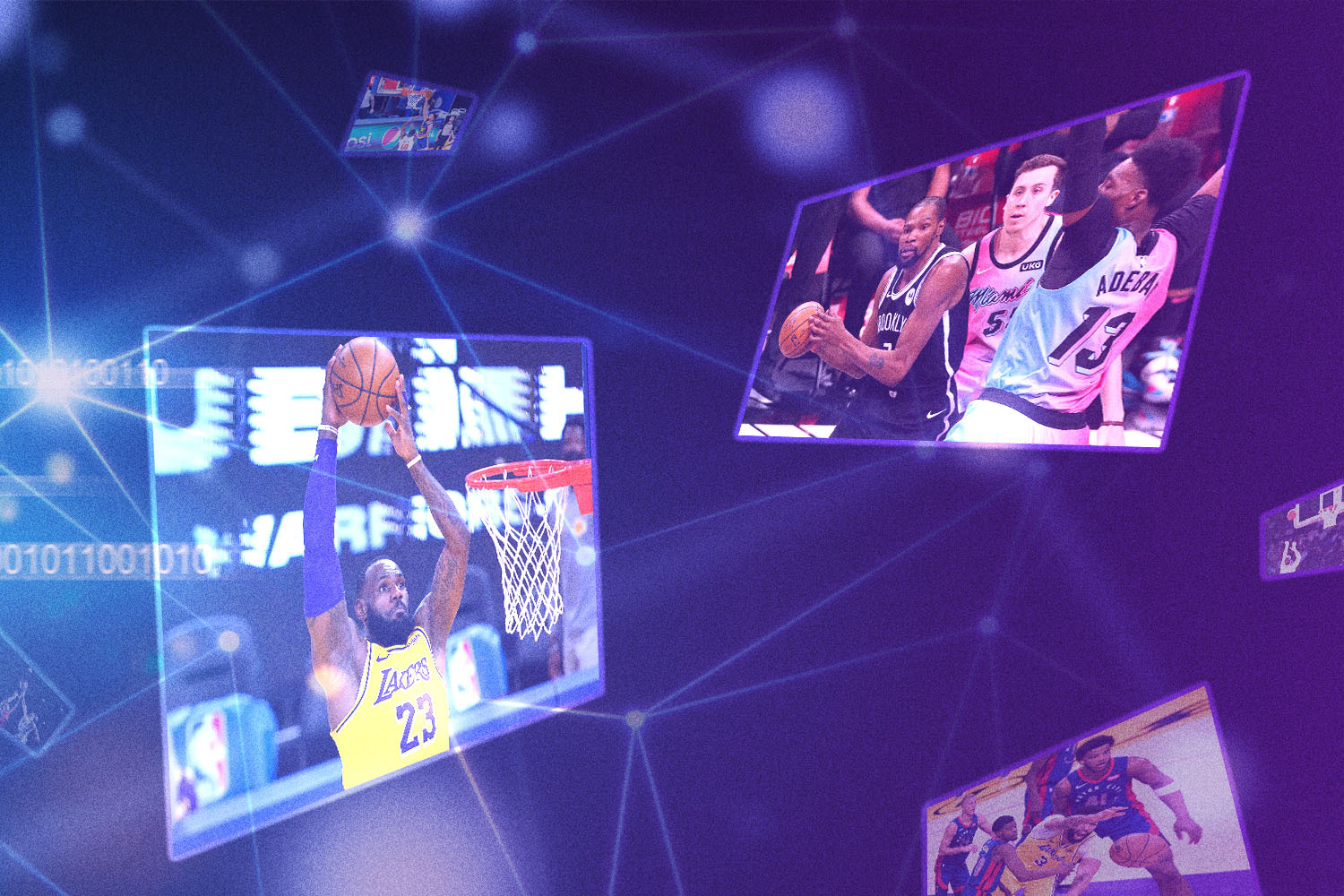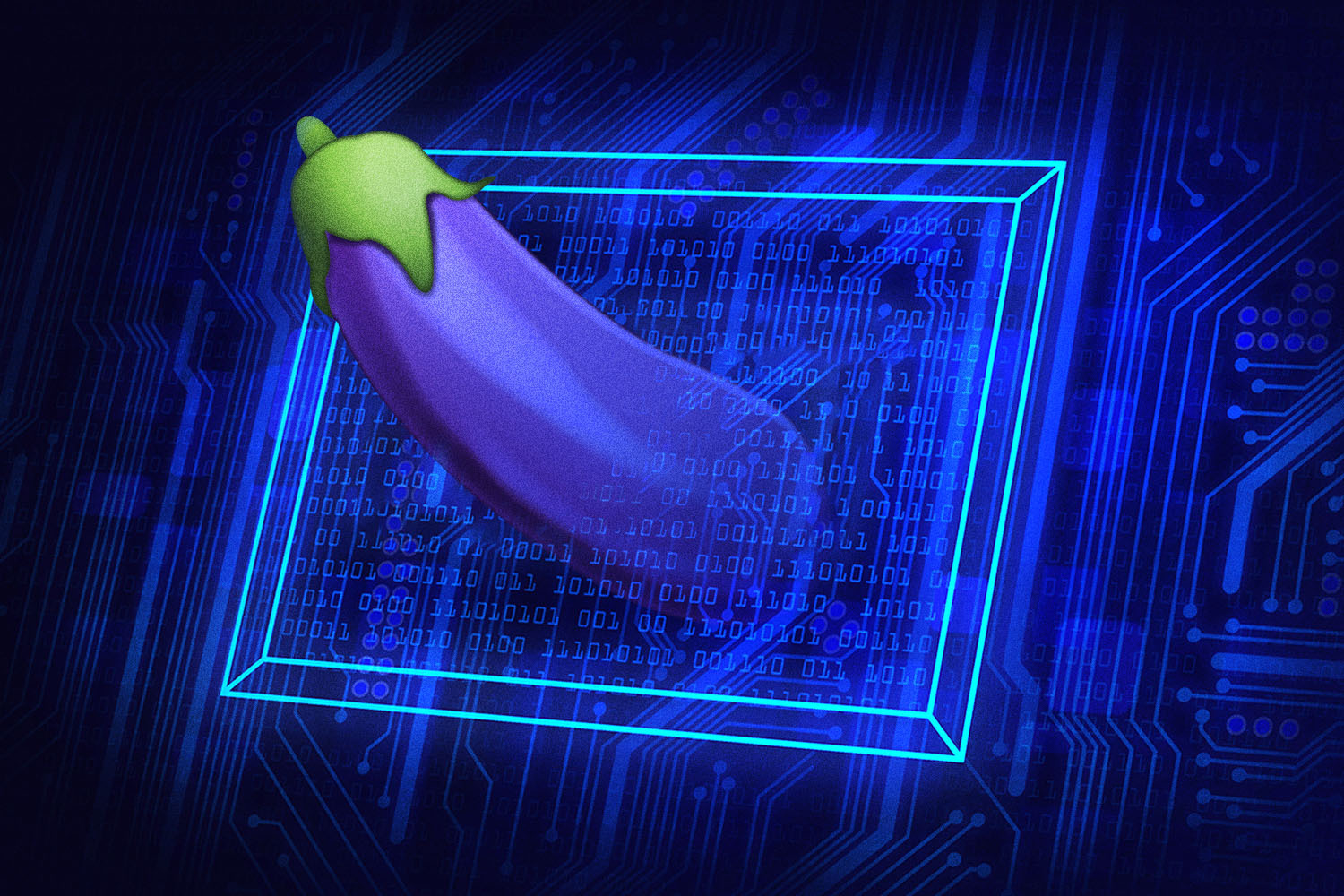“This is going to be the future of business. It’s going to be the future of culture,” said Mike Cangi. “So for me, it wasn’t a matter of if we were going to do NFTs, it was a matter of when.”
Cangi isn’t your typical NFT disciple. In fact, he’s the brand director of a company I never expected to get into NFTs at all. United By Blue, the clothing and lifestyle brand he started with Brian Linton in 2010 in Philadelphia, offers a selection of goods that’s part Patagonia, part L.L. Bean, part Everlane and was founded on an eco-friendly mission: for every product purchased, they vowed to remove one pound of trash from the ocean and waterways. At the beginning of this year they officially passed four million pounds.
Through NFTs, those blockchain-derived non-fungible tokens tied to ownership of an asset, which have most famously been used to sell digital art but can be used for an endless variety of applications, 33-year-old Cangi saw a way to expand United By Blue’s mission. So at the end of December, the company decided to sell four of their own NFTs, all tied to trash removal, through Nifty Gateway, a platform owned by the Winklevoss twins.
One NFT features a character called Eddy Earth, a new mascot for the company that’s an anthropomorphized version of our planet with sneakers and sunglasses. Those were priced at $250 each and tied to 100 pounds of trash removed from the ocean. Two other art pieces, from Andy Best and Julien Tabet, were each limited to editions of 20, priced at $600 and tied to 500 pounds of trash removed. The final blockchain artwork, from popular NFT artist Ted Chin, who is more commonly known in that world by the handle TedsLittleDream, was to be an auction; for every dollar it sold for, they would commit to removing one pound of trash.
In a press release before the sale, Cangi was optimistic they would exceed 25,000 pounds of trash total. If successful, that would have been more than twice the amount they removed during the company’s entire first year of business.
As a mission-oriented business owner, Cangi was excited at the opportunity to do more to help the planet. As an NFT collector himself, he was excited to introduce his loyal customers to a world he was inspired by. Then, United By Blue made the announcement public.
“Unfollowed…kinda ridiculous y’all thought this was a good idea,” one user commented on an Instagram post announcing the NFT drop. “I’ve been very vocal of my support for this company for years but there is nothing eco friendly about nfts and I am appalled that your company is taking part in this,” someone else replied on Twitter, adding a sad face at the end. Whereas most United By Blue posts get a handful of comments or replies, these posts unleashed dozens of critics. Many mentioned the massive carbon footprint of blockchain technology, NFTs included, and some said they would stop supporting the company because of it.
“My partner and I have been fans of your company for a long time,” reads one of the most liked comments on the Instagram post. “To see this kind of thing from you is deeply disappointing. No matter what the profits from this might generate, it does not make up the damage this does to your reputation and the betrayal your customers feel.”
United By Blue defended their position, in part, by promoting the NFT sale as climate-friendly. In a press release for the drop, Cangi said that Nifty Gateway is “carbon negative through the purchase of 2x carbon offsets” at the end of every month, a claim he reiterated to me during our interview. In other words, even if there was a significant carbon footprint, they would at least be making up for it by paying to theoretically counteract twice the greenhouse gas emissions.
But in reporting this story, InsideHook discovered this claim was untrue. At the time of writing, Nifty Gateway is not carbon negative and has not yet begun regular carbon offsetting.
The Environmental Cost of NFTs
Almost as soon as NFTs became part of the cultural consciousness — around March of 2021 when Mike Winkelmann, a digital artist who works under the name Beeple, sold an NFT for $69 million through Christie’s — people started talking about how they’re exacerbating climate change.
Most NFTs, including those offered by United By Blue, are minted (or created) on Ethereum, an energy-intensive blockchain. According to Digiconomist, a website that estimates the energy consumption of blockchain tech, a single Ethereum transaction, which could include creating an NFT, requires as much electricity as the average U.S. household uses in a little over eight days. The annualized carbon footprint of Ethereum, which has been rapidly increasing since January 2021, is currently equal to the entire country of Sweden.
This is largely what United By Blue customers are up in arms about, but the backlash is something Cangi was expecting. “I told the team that, going into it, that’s going to be something that we’re going to hear from customers, and I appreciate that,” he said in a phone call a week after the NFT sale.
He justified the environmental impact in a few ways. First, he said NFTs are a relatively small part of the Ethereum blockchain. Second, he pointed to how Nifty Gateway handles trading and storing NFTs off the blockchain, which means they’re using less energy than other platforms like OpenSea, the most popular NFT marketplace. Third, he said Nifty Gateway offsets twice the amount of carbon they produce through blockchain transactions at the end of every month (something they announced a plan for in March 2021), which is similar to what United By Blue is trying to do for its main business of selling T-shirts, bags and other gear. Cangi’s company is hoping to achieve Climate Neutral certification by April 22, Earth Day, which per their 2021 Impact Report means “measuring all of [their] greenhouse gas emissions, offsetting them with verified credits, and implementing an action plan to reduce [their] emissions year-over-year.”
“We actually had a ton of people — when we announced the NFT drop — that were coming out and not just not in support of NFTs, but calling us out that carbon offsets are a scam,” he said, in reference to the Climate Neutral certification. “When you get into it, we did our homework when it came to carbon offsets. We have a sustainability manager that has led us through B Corp certification multiple times now and has led the partnership with Climate Neutral and has a master’s in sustainability from the University of Colorado. She’s incredibly smart, talented and puts so much work into the research and education for us to be able to make these decisions and make them soundly.”
While United By Blue did their homework for the carbon offsets tied to their normal business operations, in attempting to acquire proof for this story of Nifty Gateway’s offsets tied to this NFT sale, it became clear the same meticulousness was not applied this endeavor.
After speaking with Cangi on December 28, I was unable to receive documented proof of the promised offsets after reaching out to both companies. When I was eventually able to reach Patrick McLaren, chief operating officer of Nifty Gateway, I asked him by phone if they had done any carbon offsetting outside of a one-off auction called the Carbon Drop in March 2021.
“Not that I’m aware of, no. I don’t think so,” he said. But McLaren also pointed out that although he wasn’t the one helping United By Blue with their NFTs, he’s convinced that no one from the company would have said more than they’ve made a commitment to eventually purchase offsets. According to him, they’re now planning on buying offsets that amount to twice their carbon footprint for all of 2021, though he didn’t provide specifics.
“We are probably going to make our purchase in the next week or two, probably,” he said.
When I followed up with Cangi and presented this information, he was surprised. “To be candid with you, I was under the impression that they were offsetting on a monthly basis,” he said, though he stops short of saying they’re at fault. Yes, Nifty Gateway gave him the impression they were already buying these offsets, but as he added, “I don’t think that anybody was intentionally leading me astray.” When I asked if he had United By Blue’s sustainability manager look into the supposed offsetting program to make sure it was legitimate before going forward with the sale, he said no.
The Capitalist Conservationist
After the sale on Nifty Gateway ended, United By Blue had almost reached its goal: about 24,000 pounds of trash were committed to be removed from various waterways.
“That’s the most trash we’ve ever committed to removing in a single day in our existence,” Cangi said. “That’s what really gets me fired up.”
In truth, Cangi didn’t need this success to be fired up about NFTs. He admitted that when employees asked what a successful drop would look like, he said it wasn’t about this sale, but about the second one, which he is already planning for. He owns over 100 NFTs himself, attended November’s NFT.NYC conference in New York and believes non-fungible tokens are “going to be the future of a lot of brands.”
When asked what sold him on NFTs — and the general Web3 concept that pictures a future internet that’s decentralized and blockchain-based — there are five events he cited. First, it was the artist Beeple selling NFTs for hundreds of thousands of dollars in 2020, and then his blockbuster Christie’s sale for $69 million. Third was entrepreneur Gary Vaynerchuk launching VeeFriends, his own NFT collection. (“He has a ton of influence obviously in a lot of different spaces, whether you like him or not.”) Then there’s the month the total trading volume on OpenSea eclipsed Etsy’s gross sales volume for August. Finally, he said companies like Nike moving into the NFT space was a clear signal.
“I’m not just talking about the United By Blue brands of the world, the Fortune 500 brands right now are having conversations about what is their Web3 strategy, what is their NFT strategy, because it’s not just — I don’t think — specifically about NFTs,” he said. “It’s going to be DAOs [decentralized autonomous organizations] and it’s going to be social tokens … And these are all the early signals that to me said this is here to stay.”
Not everyone believes NFTs, Web3 or a blockchain future are certain. Since mid-November, the prices of Ether and Bitcoin (the more popular, and much more energy-intensive, cryptocurrency) have been tumbling, crashes both have seen before that show their volatility. Plus, if the environmental impact of this technology becomes too great, and there are no changes to lessen emissions, there could be a public backlash, a large-scale versions of the one that initially played out at United By Blue.
More importantly, United By Blue’s NFT sale may be yet another symptom of a larger issue around climate action. As more and more companies seek to label themselves carbon neutral or even, in the case of Nifty Gateway, carbon negative, who is taking the time to police these claims? Do companies care more about the label or the action behind it?
For Cangi’s part, three weeks after the NFTs launched and four days after I relayed the truth of Nifty Gateway’s promise, he told me he was going to purchase offsets himself. On January 14, he bought offsets equal to twice the emissions of the NFTs they sold, via a platform called Aerial. (Cangi shared a receipt and Aerial’s CEO Andreas Homer also confirmed the purchase.)
None of this has softened his stance on non-fungible tokens. He’s already thinking about the next United By Blue drop, and while he’s open to working with other platforms, he’s also willing to continue using Nifty Gateway even if their offsetting plan never comes to fruition. As he’s shown, they can use sites like Aerial to do it themselves.
“I am equal parts conservationist and capitalist, and I think there’s beauty in using business as a force for good in that way,” he said. “I look at NFTs as another tool to help propel the mission forward.”
This article was featured in the InsideHook newsletter. Sign up now.























